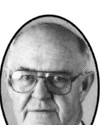Mr. Speaker, I, like my colleagues in the Bloc Quebecois, am pleased to rise in the House today to speak on the motion to recognize the distinct nature of Quebec society.
Before speaking on the motion, as such, I would like to refer to a short passage from the Practical Guide to Private Members' Business , which defines a motion. It says that the effect desired is the first consideration in deciding between a bill and a motion, that in passing a motion-as is the case here- stating a resolution, the House expresses a wish without committing the government to a particular measure or direction.
A wish is expressed, which does not commit the government to a particular measure or direction. It is important to remember that this is what the motion is directed at. The guide goes on to say that, on the other hand, a bill passed by Parliament may have major implications for both the government and the public.
But there is no cause for anxiety. This is not a bill, it is a motion, that is, a wish that does not commit the government to a particular measure or direction, in other words, it does not amount to much.
I would also point out that, in this House, a motion was passed last December 13, which reads as follows: "That, in the opinion of this House, the government should officially recognize the historical contribution of the patriotes of Lower Canada and the Reformers of Upper Canada to the establishment of a system of responsible democratic government".
This motion was passed on December 13. What action has been taken to implement this motion since? None, none whatsoever, because it was idle talk that did not commit the government to anything.
Let me remind you that a motion recognizing hockey as our national winter sport and lacrosse as our national summer sport was also passed. What action has been taken since? The Canadian lacrosse team's budget was eliminated. Completely. What good is a motion? It does not mean a thing.
Besides being meaningless, the motion is contradictory to begin with, because it reads, and I quote:
That-the House recognize that Quebec's distinct society includes its French-speaking majority, unique culture and civil law tradition;
"Unique culture". Just this afternoon, my hon. colleague from Rimouski-Témiscouata asked the Primer Minister the following question:
Mr. Speaker, my question is for the Prime Minister. Yesterday, government members of the heritage committee maintained that there was no such thing as a Quebec culture-
Now this motion says that we in Quebec have a unique culture. Unique means that it is exclusive to Quebec, if I am not mistaken.
Yet government members maintained that there was no Quebec culture, only one great big Canadian culture. It seems to me that their position flies in the face of the motion these same members are about to vote on.
And what was the Prime Minister's answer?
Mr. Speaker, there is a French culture in Canada, and it is a Canadian culture.
There is only one culture in Canada: the Canadian culture. That is what the Prime Minister said. On the other hand, the motion tabled by the Prime Minister himself, seconded by his Deputy Prime Minister, recognizes that there is a unique culture in Quebec. It reads:
That-the House encourage all components of the legislative and executive branches of government to take note-
-it does not say much, "to take note"-
-of this recognition and be guided in their conduct accordingly.
What did the Prime Minister do this afternoon? Just the opposite. The opposite of what? The opposite of what a meaningless motion says to do. Is there any doubt about that? I will let you be the judge of that, Mr. Speaker.
Yet, during the referendum campaign, the Primer Minister repeated time and time again that he would positively not address constitutional issues, but deal with the real problems instead, namely job creation and deficit reduction. How did we end up debating this motion then? Because they were afraid. They looked at the polls and realized that they were losing ground. Faced with rising support for the yes side in opinion polls toward the end of the campaign and with the possibility of losing the referendum, the Prime Minister suddenly changed his mind. He set up a smoke-and-mirrors operation aimed at convincing the people of Quebec that the federal government was committed to making major changes to the current federal system after a hypothetical no.
The fact that this strategy was improvised from beginning to end was, of course, reflected in the Canadian Prime Minister's ambiguous and meaningless comments in the last days of the referendum campaign. On October 24 in Verdun, he said, and I quote: "Quebecers want Quebec to be recognized within Canada as a distinct society by virtue of its language, culture and institutions. I have said it before and I say it again, I agree". Yet, he tells us today that there is only one culture in Canada, although his motion says that Quebec has a distinct culture. No matter, he has a right to be mixed up.
The Liberal government also felt pressured to deliver on its vague promises to change the federal system following the razor-thin victory of the no side on October 30.
To do so, it set up two phoney committees. One of these committees was chaired by the Minister of Intergovernmental Affairs; its mission was to save Canada. What a nifty little mission.
On November 29, even before the committee tabled its findings, the Prime Minister hastily announced three initiatives aimed at satisfying the desire for change expressed by the vast majority of Quebecers.
As far as recognition of Quebec as a distinct society is concerned, however, these efforts are not very impressive. But, before going any further, allow me to read the motion:
Whereas the people of Quebec have expressed the desire for recognition of Quebec's distinct society;
(1) the House recognize that Quebec is a distinct society within Canada;
(2) the House recognize that Quebec's distinct society includes its French-speaking majority, unique culture and civil law tradition;
Perhaps my French is not so good, but to me "culture- unique" means a culture that is different from others.
(3) the House undertake to be guided by this reality;
(4) the House encourage all components of the legislative and executive branches of government to take note of this recognition and be guided in their conduct accordingly.
In other words, this is just the opposite of what was done this afternoon.
Upon reading the motion, we realize that it is merely a recognition of Quebec society as it is now. It simply reflects a logical conclusion.
Nowhere in this text is there any mention of additional powers being given to Quebec. Even the minister told us that it does not provide powers to Quebec. He is an honest man.
This motion is meaningless. It is merely a symbolic recognition of what we already know, namely that we are different from the rest of Canada. Even the Prime Minister has said so.
The fact is that the recognition of Quebec's distinct nature, as currently proposed by the Liberal government, is light years away from what was proposed in the past.
Indeed, during the 1986-87 federal-provincial negotiations to make Quebec sign, with honour and enthusiasm, the Constitutional Act of 1982, the Liberal Party of Quebec made a demand, as part of its June 1985-86 political agenda. This is for the Quebec Liberals who hold a Liberal party membership: "The Liberal government is asking that a statement be included, in a preamble to the new Constitution, to explicitly recognize Quebec as a distinct society and as a cornerstone for the French element of the Canadian duality".
That was not written by nasty separatists in their political agenda, but by the Liberal Party of Quebec.
These proposals from the Liberal Party of Quebec led to the Meech Lake accord. Although the concept of distinct society in that accord was not worth much, at least it was entrenched in the Canadian Constitution. Moreover, the distinct society clause was interpretative. Therefore, the provisions of the Canadian Constitution had to be interpreted based, among other things, on that clause. Consequently, today's motion on the concept of distinct society is very far from what was agreed to in the Meech Lake accord. There was a minimum of interpretative powers. Today, there are none.
There is nothing of the like being proposed today, besides which the government side is deluding itself into believing that Quebecers will smilingly accept such a ridiculous proposition and undertaking-and I am weighing my words carefully with that choice of adjective.
Where were the people in the Liberal government when the people of Quebec came close to saying yes to sovereignty on October 30, at 49.4 per cent? Do the Prime Minister and his cronies really believe that the people of Quebec will settle for that stuff and nonsense when they came within a hair's breadth of acquiring a country with total control over all of its powers? No. The federal government needs to stop fooling itself and face up to reality.
Quebec is not inhabited by a distinct society, but by a people, the people of Quebec. The men and women of Quebec already know that, and this is why they do not recognize themselves in the meaningless concept of a distinct society. If there is one lesson to be learned from the October 30 referendum, it is that the people of Quebec are on their way to sovereignty.


























































